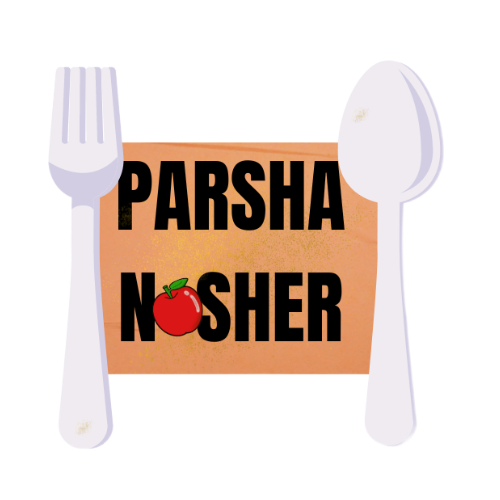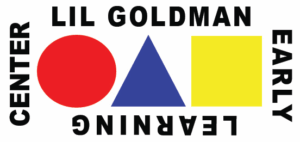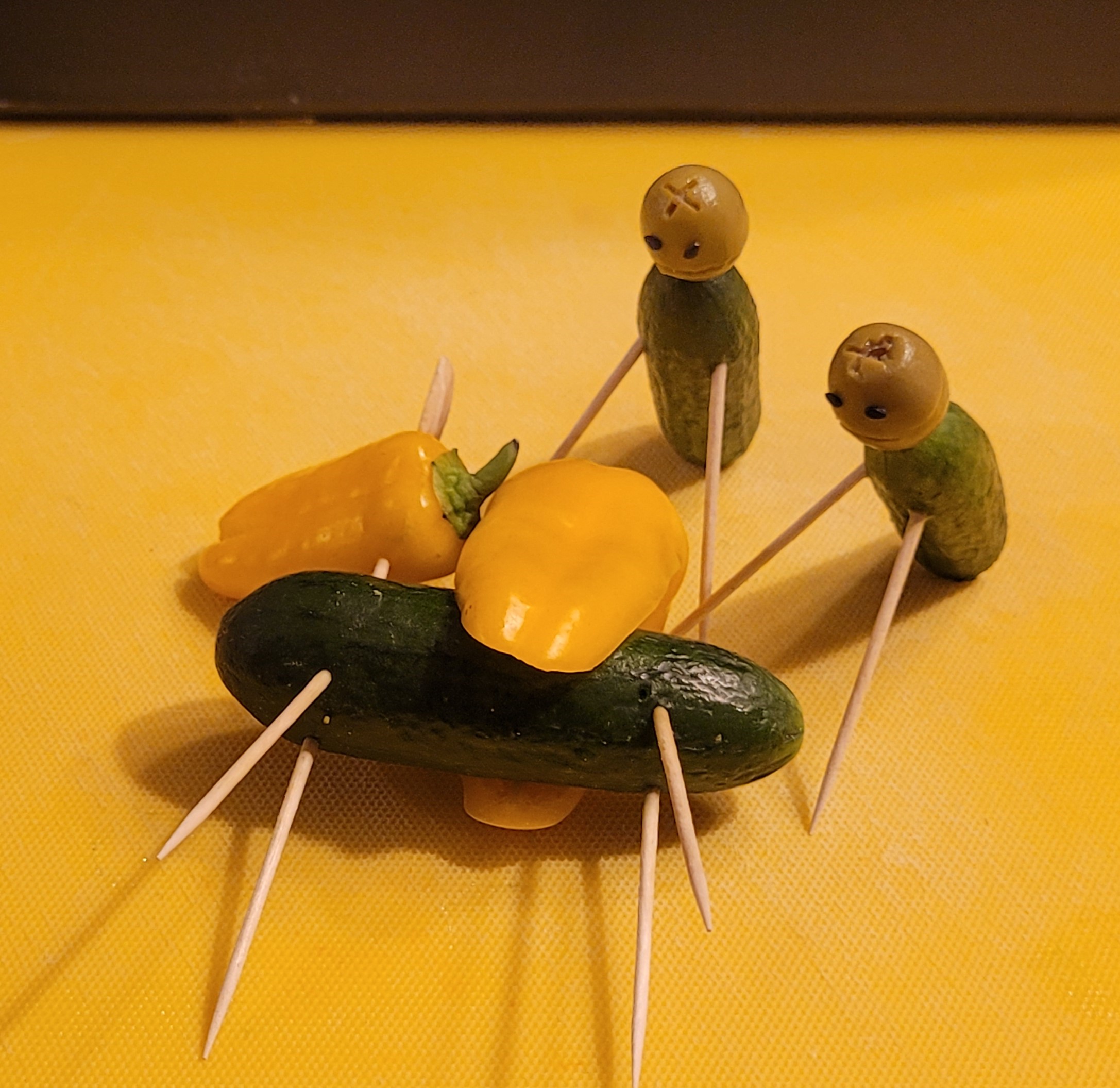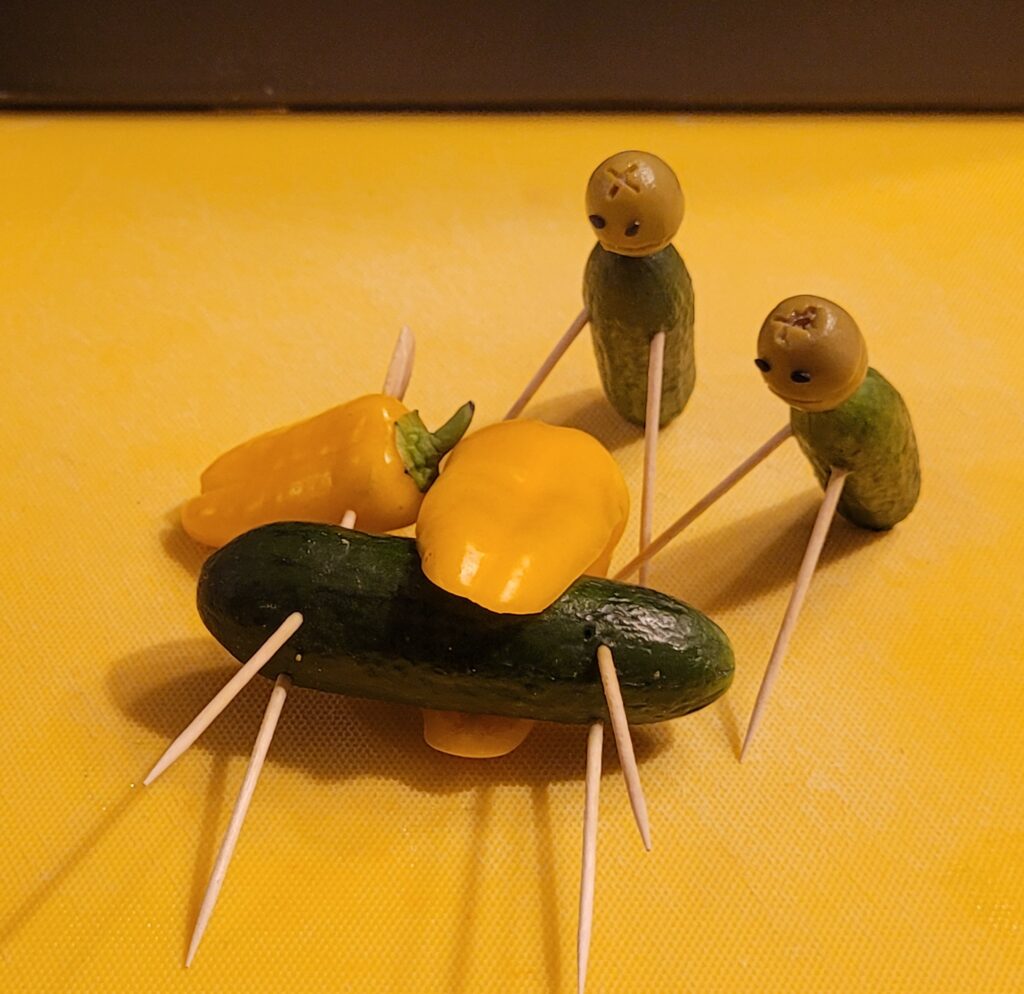
When one sees a person struggling to raise his pack animal, one must help regardless of to whom the animal belongs. In parashat Ki Teitze we are told to help if we see our fellow struggling to raise a fallen animal. In parashat Mishpatim we are told to help our enemy whose pack animal has fallen under its load.
We help a friend just because he needs help. For the enemy, it seems we are also concerned about the animal, who is struggling under its burden. We help because we care about the animal’s well-being, regardless of how we feel about the owner.
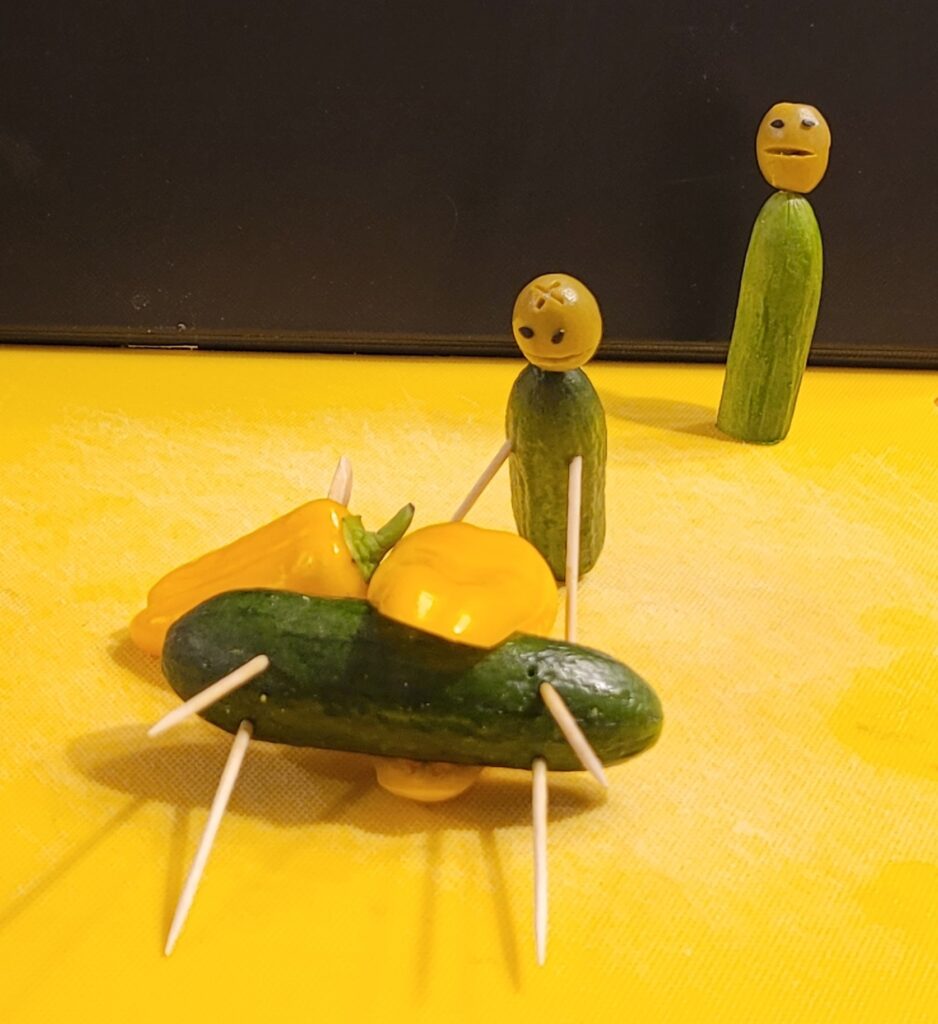
Deut. 22:4: “If you see your fellow Israelite’s ass or ox fallen on the road,…”

do not ignore it,
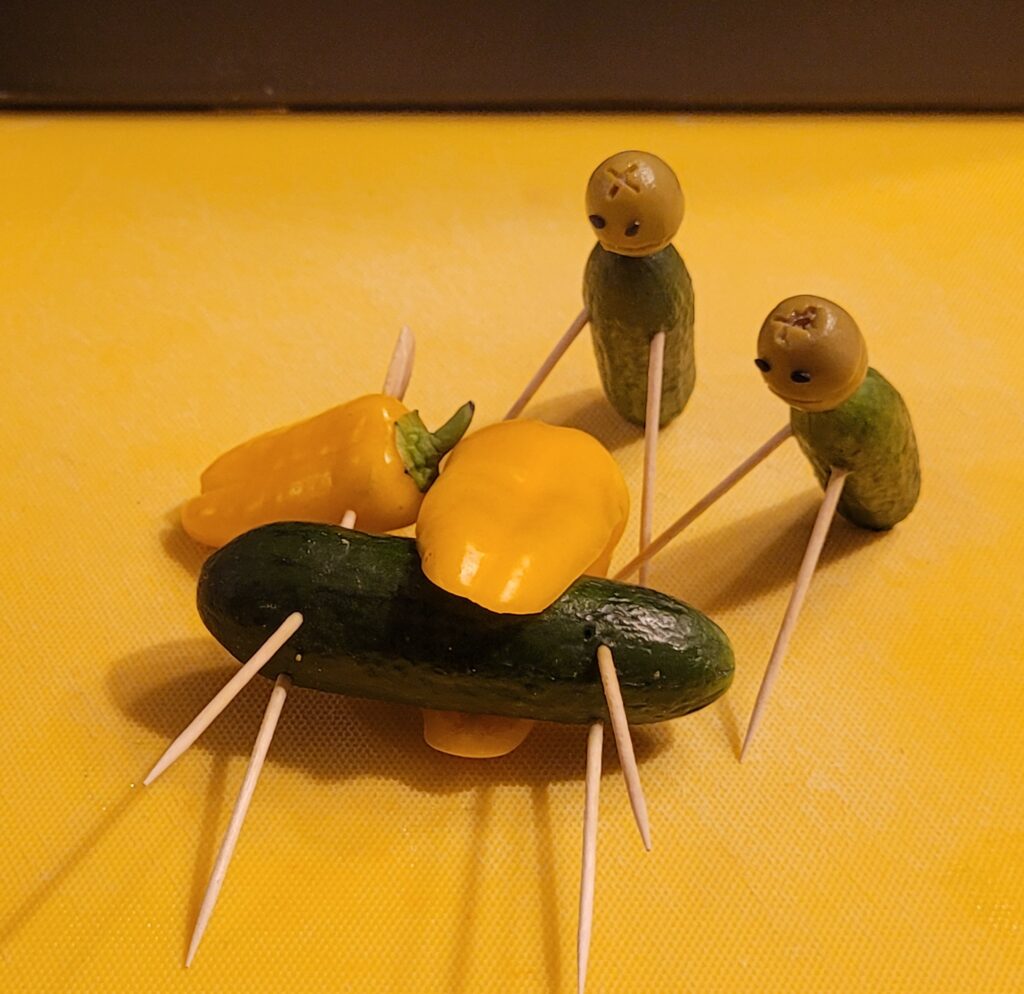
you must raise it together.”

“Goodbye! Have a great day! So glad I could help!”
Ingredients:
- 2 Persian cucumbers or three tiny cucumbers
- 1 mini pepper
- 2 almond slivers
- 2 olives
- Black sesame seeds
Tools:
- Knife
- Toothpicks
Instructions:
1. Choose one cucumber to be the donkey. Cut if necessary. Stick four toothpicks on one side to make legs, ad one on the other to hold the head.
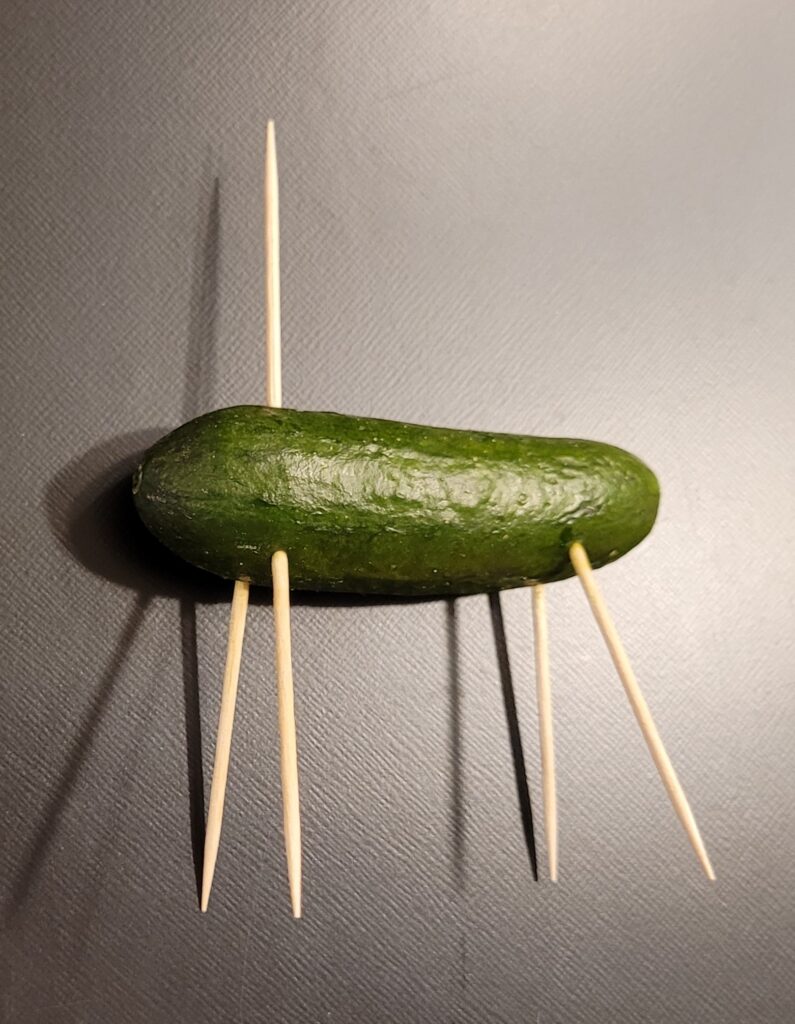
2. Take the mini pepper, cut a mouth.
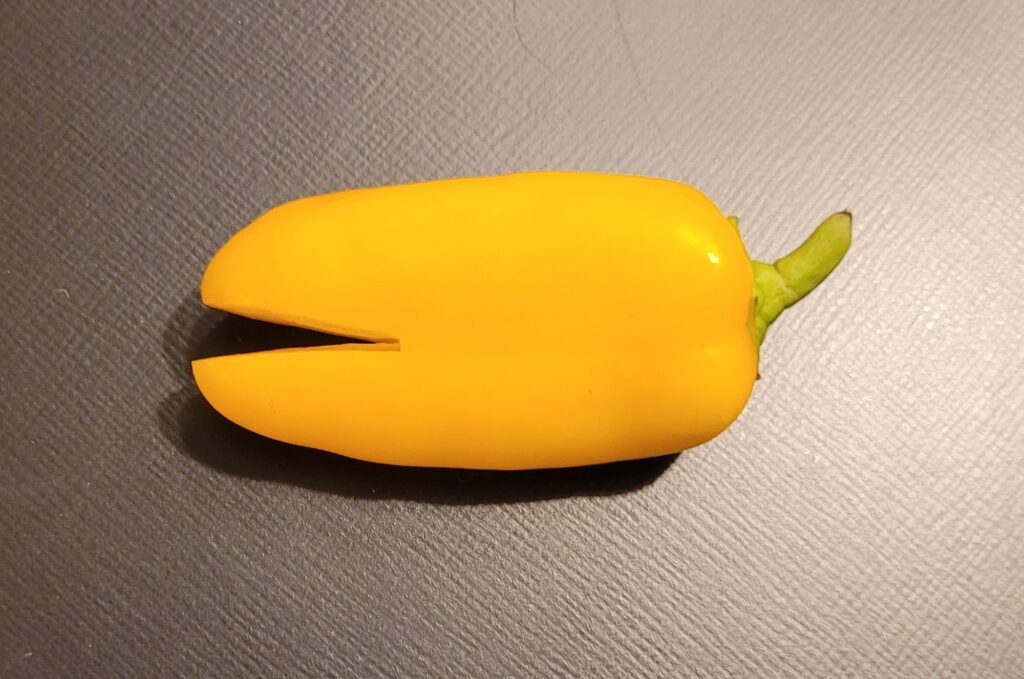
3. Poke holes in top of pepper (or one longer slit) to allow you to add almond sliver “ears.” Insert almond slivers.
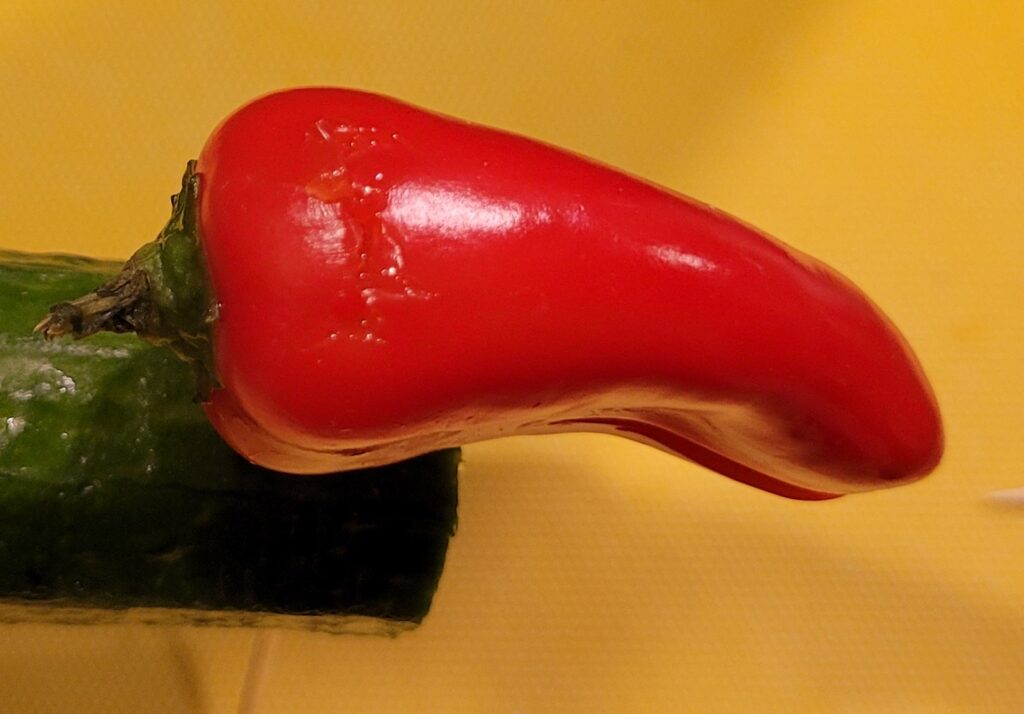
4. Take a mini pepper large enough to surround the cucumber, and cut to form an oversized load, and put on donkey. Alternatively, you can drape a lettuce leaf, piece of cabbage, slice of soft cheese; anything you can put on the “donkey’s back.
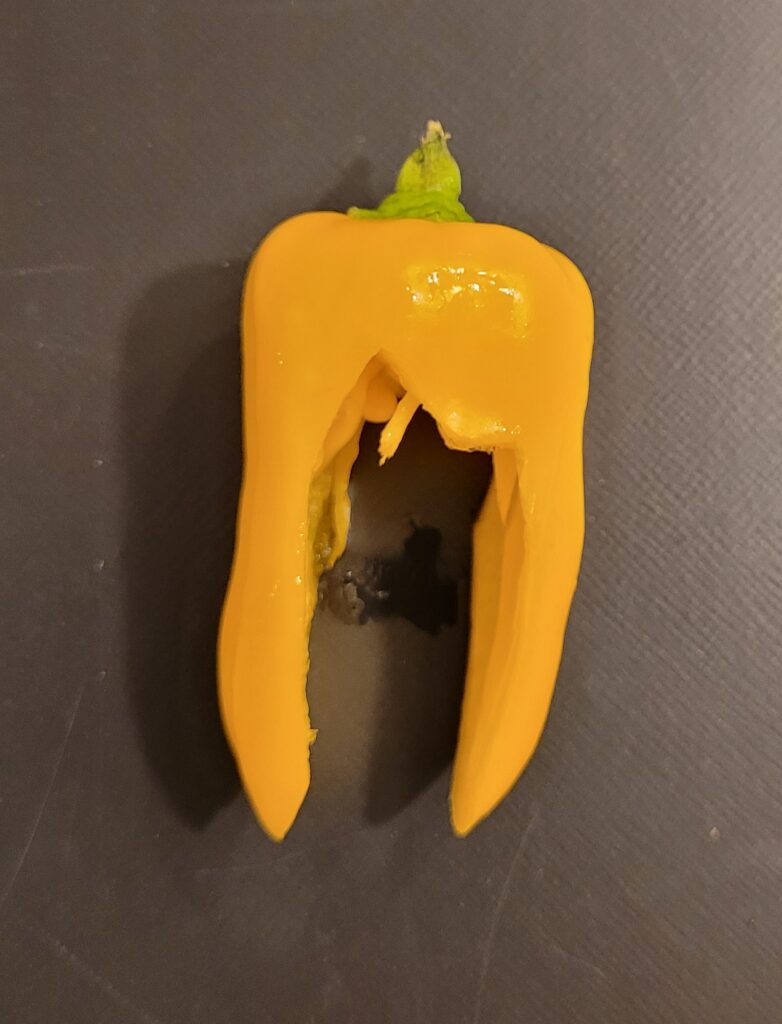
5. Cut bottoms off of tiny cucumbers to enable them to stand, or one Persian cucumber in half. Stick toothpicks through the top to hold “heads.”
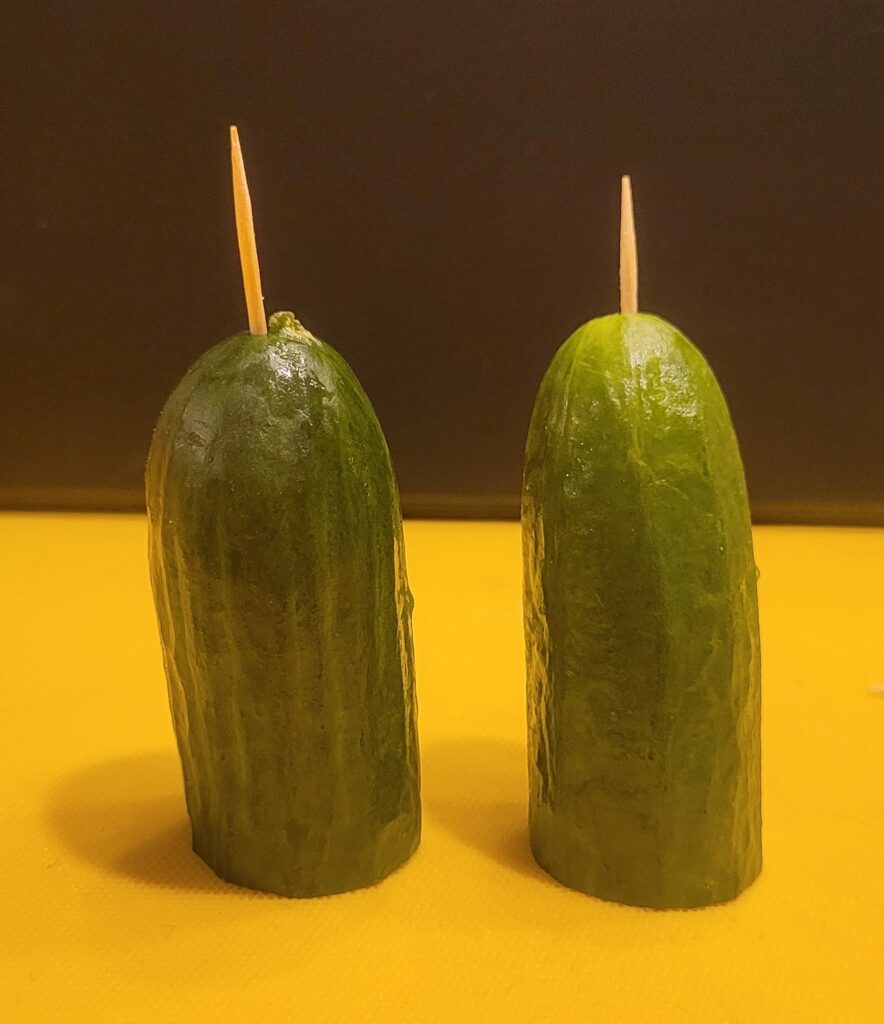
6. Cut a small sliver in each olive to form a “mouth.”
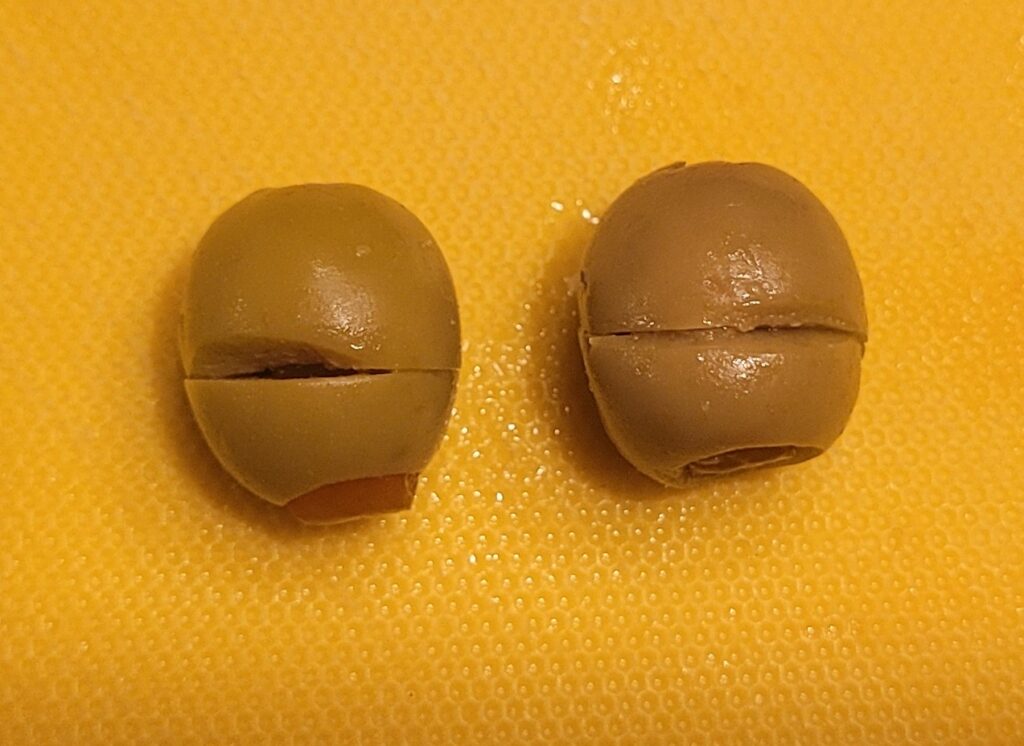
7. Put olives on top of cucumber “bodies,” and place black sesame seed eyes on the heads. The sesame seeds should stay attached just due to the brine still on the olives.
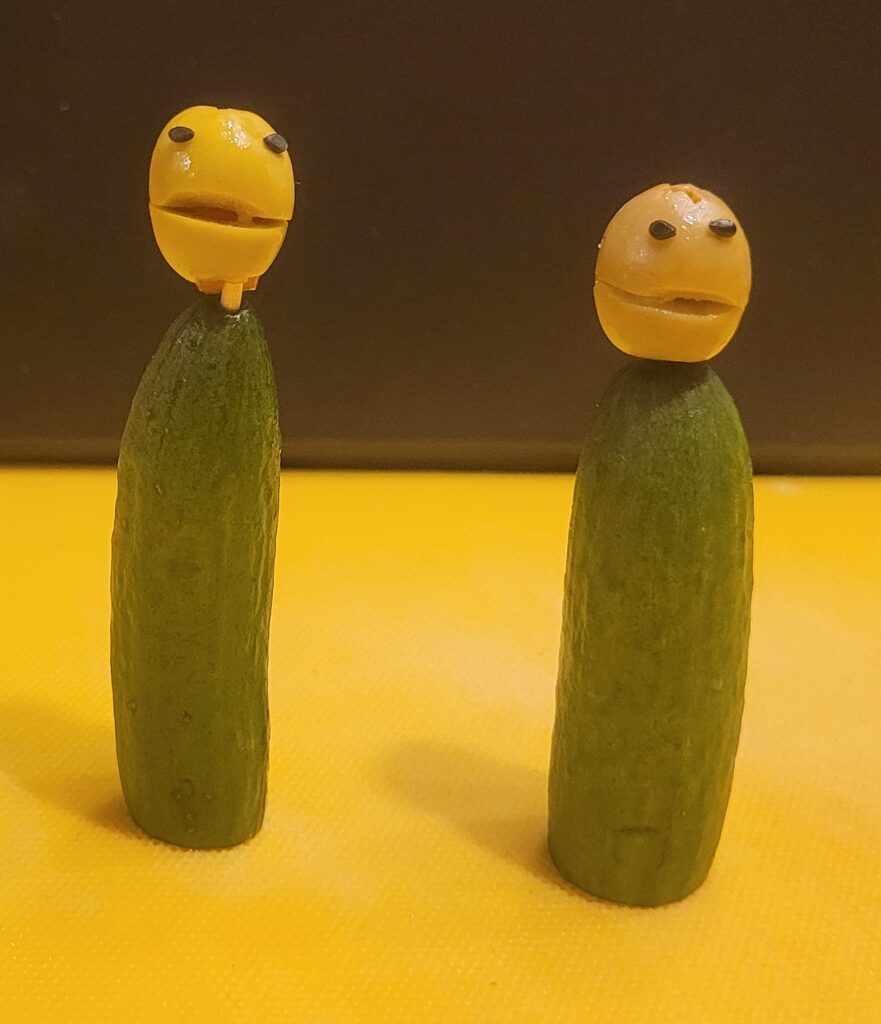
There you go! No toothpick hands are needed until you are ready to position them, then poke in and own of the cucumbers as you see fit.


